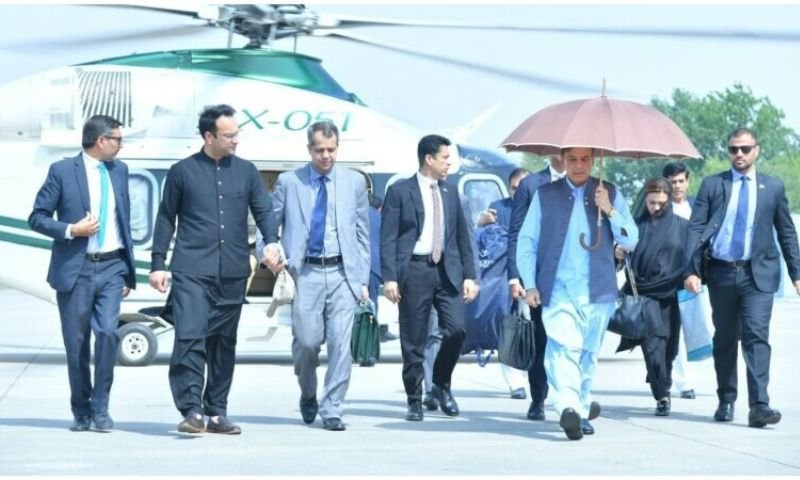The Prime Minister will travel to Paris on the invitation of French President Emmanuel Macron to attend the June 22–23 New Global Financing Pact Summit.

The Prime Minister will travel to Paris on the invitation of French President Emmanuel Macron to attend the June 22–23 New Global Financing Pact Summit.
According to Macron, the summit aims to forge a “new consensus” to achieve the interconnected global goals of combating poverty, reducing emissions that contribute to global warming, and protecting the environment.
Taxing shipping, fossil fuels, or financial transactions is just one of the suggestions on the table. Others include rethinking the structure of the World Bank and IMF.
The two-day summit, which starts on Thursday and will include about 50 heads of state and government, was more of a forum for idea sharing before a number of significant economic and climate meetings in the upcoming months, according to France.
The French presidency specifically stated on Friday that it wanted to give “political impetus” to the notion of a global tax on carbon emissions from shipping in the hopes of making progress at an ILO meeting later in June.
Developing nations are looking for concrete progress as their trust has been damaged by broken climate financing promises from wealthier nations.
Restructuring the global financial system to comply with climate targets must be finished by 2030, according to the V20 group of countries on the front lines of the climate crisis, which has grown to include 58 member nations.
Although it’s great that we are discussing the global financial architecture, Sarah Jane Ahmed, V20 global lead and finance adviser, told AFP that we need to see timelines and we haven’t seen them yet.
If we begin taking these actions in the 2030s, they will be much more expensive, and the trade-offs will be much greater.
According to Islamabad, the summit will provide the leaders with a chance to discuss the details of a new global architecture that can effectively address the issues associated with financing the agenda for sustainable development, the environment, energy transition, and climate change.
The goal of the Summit, according to a statement from the foreign ministry, is to “define the principles and steps required for a comprehensive reform of the international financial system, and pave the way for a more balanced and fair partnership between the North and the South” in the lead-up to other significant international events and conferences over the course of the next two years.
Pakistan will contribute to the discussion at the Summit as a significant participant in the global conversation, a leader in the G-77 and China, and one of the largest developing nations most adversely affected by climate change, according to the statement.
The premier will discuss Pakistan’s views and recommendations for reforming international financial organisations, financing climate change initiatives, building greener infrastructure, achieving the SDGs, and dealing with debt. Alongside the Summit, he has scheduled individual meetings with other world leaders.
Notable leaders arriving in Paris to promote that same message include Ghana’s President Nana Akufo-Addo, Kenyan President William Ruto, and Barbados Prime Minister Mia Mottley, who will deliver the summit’s opening address on Thursday.
Other attendees include European Commission President Ursula von der Leyen, US Treasury Secretary Janet Yellen, and Chinese Premier Li Qiang.
Ajay Banga, who has pledged to embrace change since taking the helm of the World Bank, is also anticipated in Paris for his first international meeting.
Global Citizen’s Friederike Roder warned that the conference might not live up to expectations for a show of unity because there were fewer leaders from wealthy nations present.
She told AFP, “We need everyone coming together,” highlighting the importance of major economies coming to an agreement on reforms.
Multiple shocks have decimated economies in recent years, including Covid-19, Russia’s invasion of Ukraine, soaring inflation, and the rising costs of weather-related catastrophes exacerbated by global warming.
The pandemic and its aftermath, according to UN chief Antonio Guterres, amounted to a “stress test” for a financial system that was established almost eight decades ago.
He stated earlier this month that “it largely failed,” adding that 52 developing nations are in or on the verge of debt distress.
The current state of the world’s efforts to keep warming to 1.5 degrees Celsius above pre-industrial levels puts nature, human societies, and the global economy at grave risk.
Developing nations other than China will need to spend more than $2 trillion annually by 2030 on development and to address the climate and biodiversity crises, according to a UN expert committee’s report from the previous year.
The ability of richer nations to fulfil existing commitments, such as the still-unfulfilled pledge of $100 billion annually by 2020 to support developing nations cut emissions and boost climate resilience, will be a key message from the Global Financing Pact Summit in Paris, according to Roder.
The calls from emerging economies include increasing the amount of money available and possibly using hundreds of billions of the IMF’s liquidity-booster “special drawing rights.”
Barbados has advocated a disaster clause that would allow loan repayments to be suspended for two years in the event of a pandemic or climate disaster.
The size of current debts is another hot topic for discussion.
That will also draw attention to China, which has grown to be a significant lender to African nations but has resisted joining the common framework for debt restructuring.
According to Louis-Nicolas Jandeaux of Oxfam, the Global Financing Pact Summit in Paris has the potential to “bring a lot of issues out of their niche,” but there is “a gap between the initial stated ambition of the summit and the reality.”